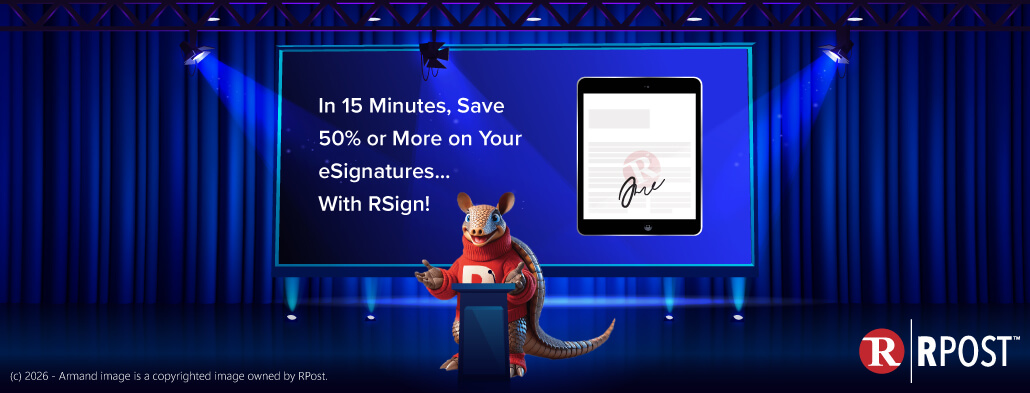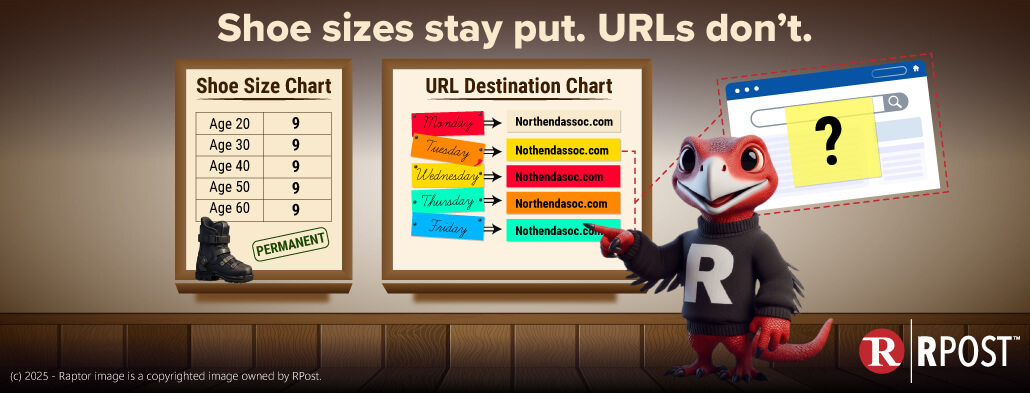
This posting should serve as a reference guide for process servers or lawyers who need to prove service by email.
(1) Serve by email
(1a) Florida Rules of Judicial Administration now require service of court documents to opposing counsel by email and rely upon the sender to track and prove delivery of said emails, and any attachments, to the intended recipient. The Florida Bar now offers RPost Registered Email™ service as a member benefit, for use when complying with the mandatory service by email Rule.
(1b) In other states, request permission to serve by email
Request permission from the judge to serve court documents sent by RPost Registered Email™ service. Report to the judge that you will use the RPost Registered Email™ service as this method will produce a Registered Receipt™ email record that could be filed in paper form as supporting evidence of proof of successful service, with an electronic copy maintained that will provide the court with, on demand, an authenticated electronic record of (a) proof of receipt with proof of time received for email defined by the Uniform Electronic Transactions Act Section 15, (b) proof of the precise content received, to include message body text and attached court documents, and (c) the underlying transaction metadata and internet forensics that support the record of successful electronic transmission.
(2) Supporting exhibits
(A) Proof of delivery, regardless of opening and reading.
Stan Gibson, Partner at Jeffer Mangels Butler & Mitchell LLP provides some guidance as to what this means, in his paper entitled, “CONVERTING LEGAL & CONTRACT NOTICES FROM PAPER TO ELECTRONIC DELIVERY, a Corporate Counsel Guide.” In this paper, he writes, “Importantly, what constitutes a ‘legally received electronic message’ is defined within the Uniform Electronic Transaction Act (UETA). Assuming UETA applies to the transaction (note, although we are referencing United States law, this principle generally holds internationally as this is based upon a United Nations model law that has been used as the foundation for most electronic transaction laws worldwide), an email is deemed “received” under UETA pursuant to Sections 15(b) and (e), which state the following: 15 (b) Unless otherwise agreed between a sender and the recipient, an electronic record is received when: (1) it enters an information processing system that the recipient has designated or uses for the purpose of receiving electronic records or information of the type sent and from which the recipient is able to retrieve the electronic record; and (2) it is in a form capable of being processed by that system. 15 (e) An electronic record is received under subsection (b) even if no individual is aware of its receipt.”
(B) Proof of court documents (attached) received.
It is important to note here that a ‘store-and-forward’ system, or a system that sends an email link out and waits for the recipient to click the link would not be effective as it is unlikely that the parties being served notice would have voluntarily clicked the link to retrieve the court documents (since presumably they had already refused to accept these documents when asked in prior email correspondence). So, proof of receipt of an email with a link, or even proof that a link to download was clicked, would not likely constitute proof of delivery of documents. Further, an email tracking system that tracks email opening would not be effective as these require certain settings to be turned on by the recipient (display of images, or voluntary or automatic response to requests for read receipts) and even if these are turned on by all recipients, there would be no simple method of authenticating the record of opening and the content enclosed in the email that was purported to have been delivered/opened. Outlook read receipts require the recipient to have Outlook, set their system to return the receipt, but even if returned, there is no way to authenticate the content of the message or the content of the receipt which can be easily forged. The Gibson corporate counsel guide noted above discusses these points as well.
(C) Authentication, court-admissibility, and supporting exhibits to file with record of receipt.
The Locke Lord Bissell and Liddell “Legal Review of RPost Registered Email™ service in context of Electronic Law relative to Authentication / Admissibility Requirements” provides a detailed discussion of requirements based case law, to assure court-admissibility of email records. Since this legal review, when submitted with the RPost Registered Receipt™ email record, describes the authentication process for this receipt (the ability to reconstruct the message content, attachments, fact of delivery, uniform times, Internet forensics, all mathematically associated together) and maps the receipt structure to the landmark case law that guides on email admissibility, you may find it useful to simply attach as exhibits (a) a print out of the Registered Receipt™ email itself (while maintaining an electronic copy in case the receipt would need to be later authenticated), (b) the Gibson corporate counsel guide referenced above citing the UETA reference, and (c) the Locke Lord Bissell and Liddell legal review.
Know more:
How To Secure Email
RPost makes third party legal analyses available on its website for information purposes, but neither provides neither legal opinions nor legal guidance, and this information should not be considered a legal opinion or legal guidance from RPost. RPost uses the trademark “Legal Proof” and various iterations in different languages since the early 2000’s. Use of the word “Legal” within this trademark should not be interpreted as providing legal opinions or legal guidance as to the legal nature of RPost services. RPost recommends users consult their own lawyers or other experts for legal opinions or guidance specific to their needs or situation.
“RPost”, “Registered Email™” and “Legal Proof” are registered trademarks in the United States and unregistered trademarks in other countries.

January 16, 2026

January 09, 2026

January 05, 2026

December 26, 2025

December 19, 2025